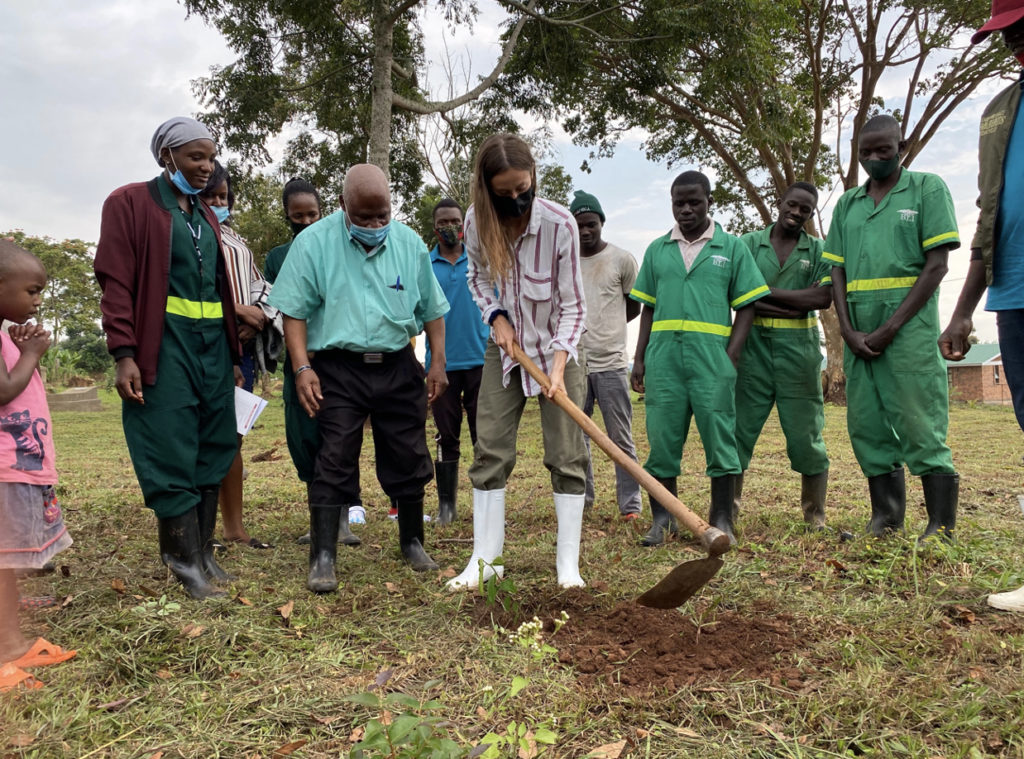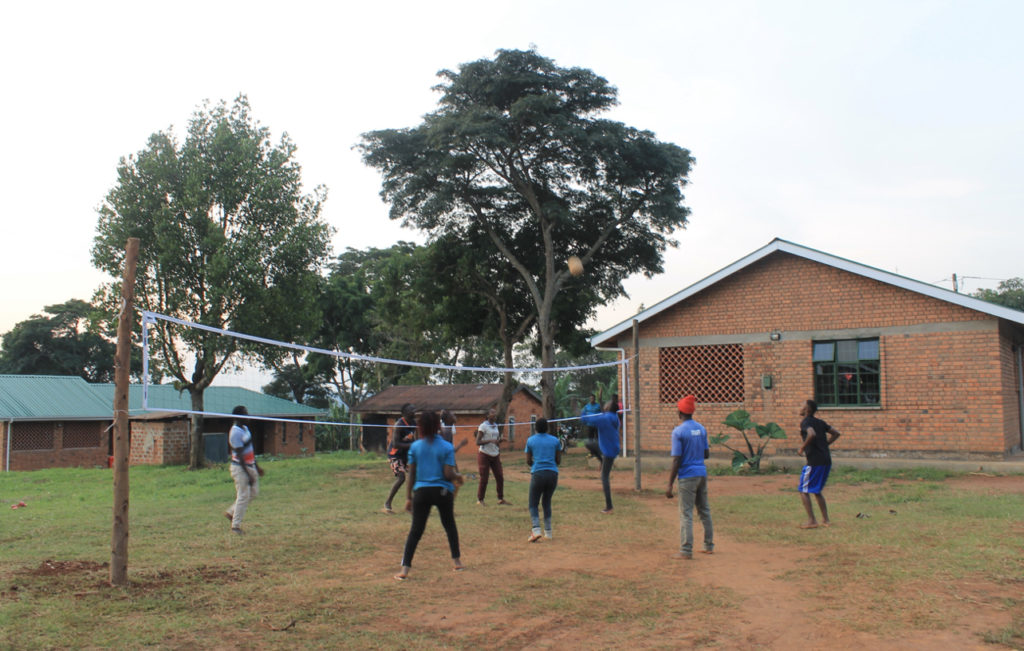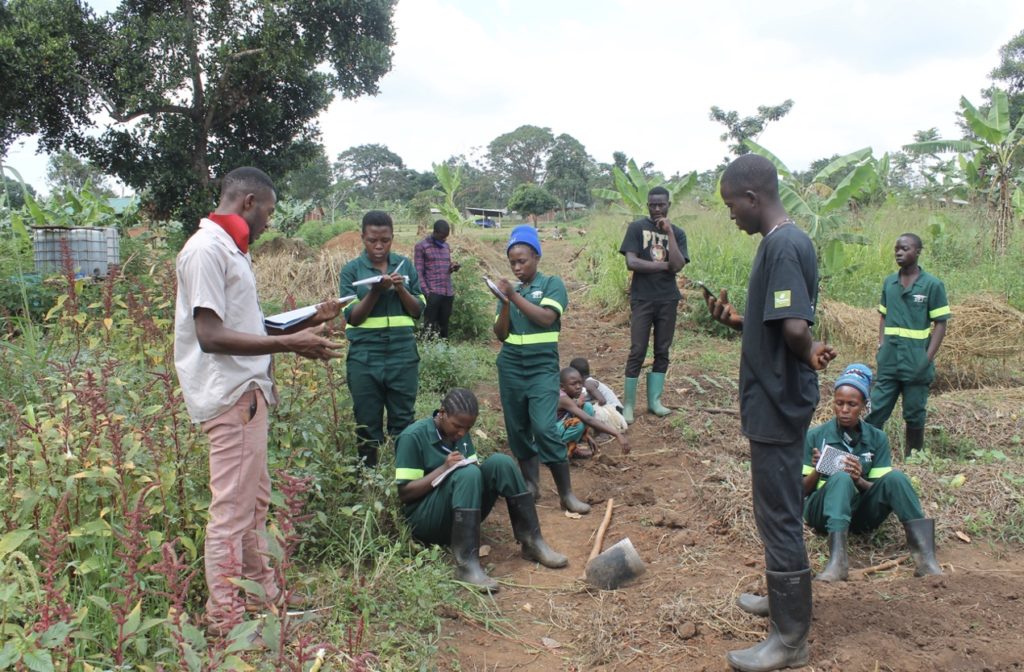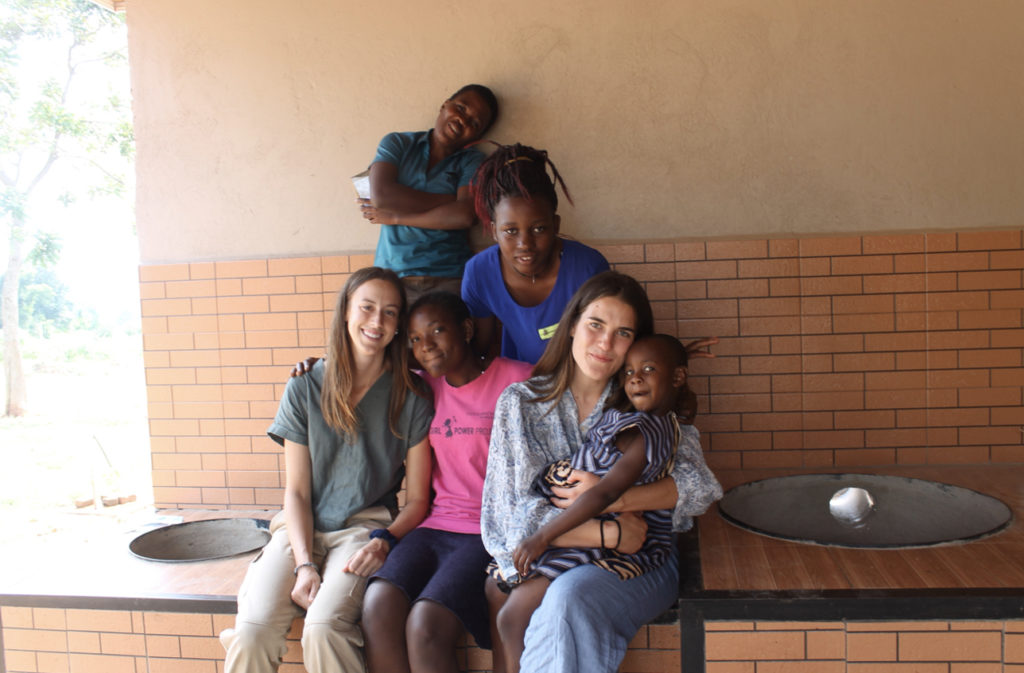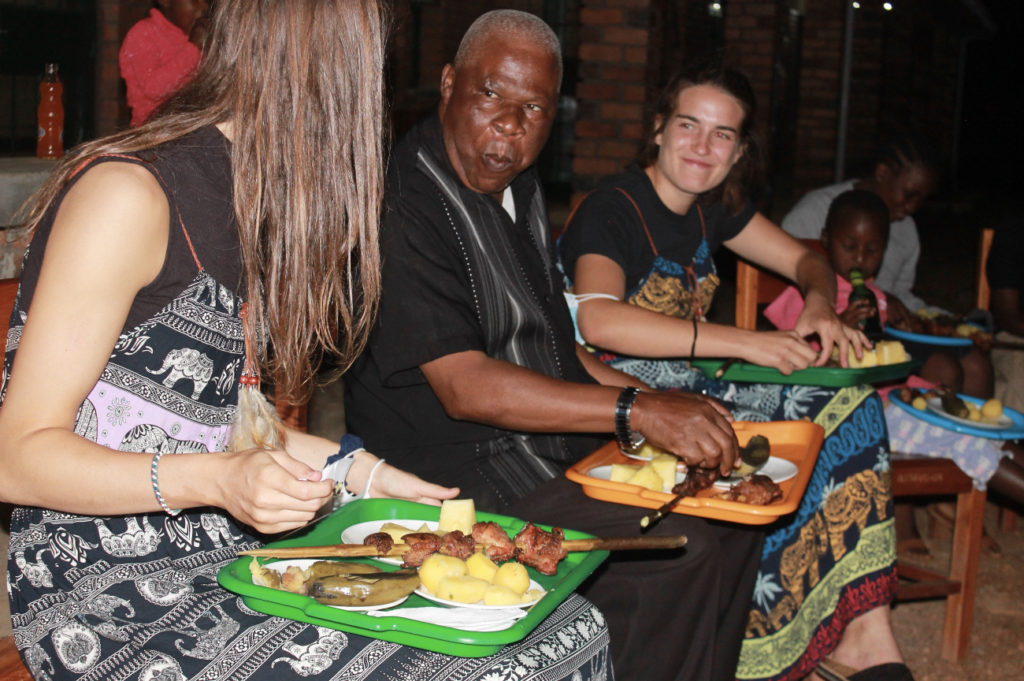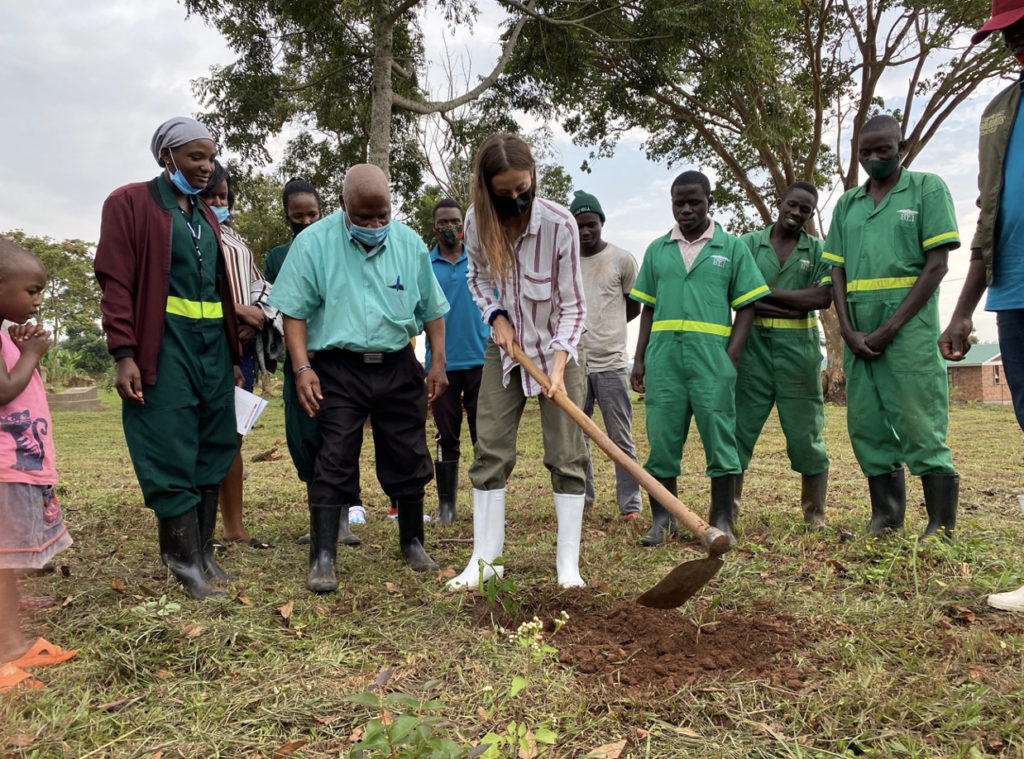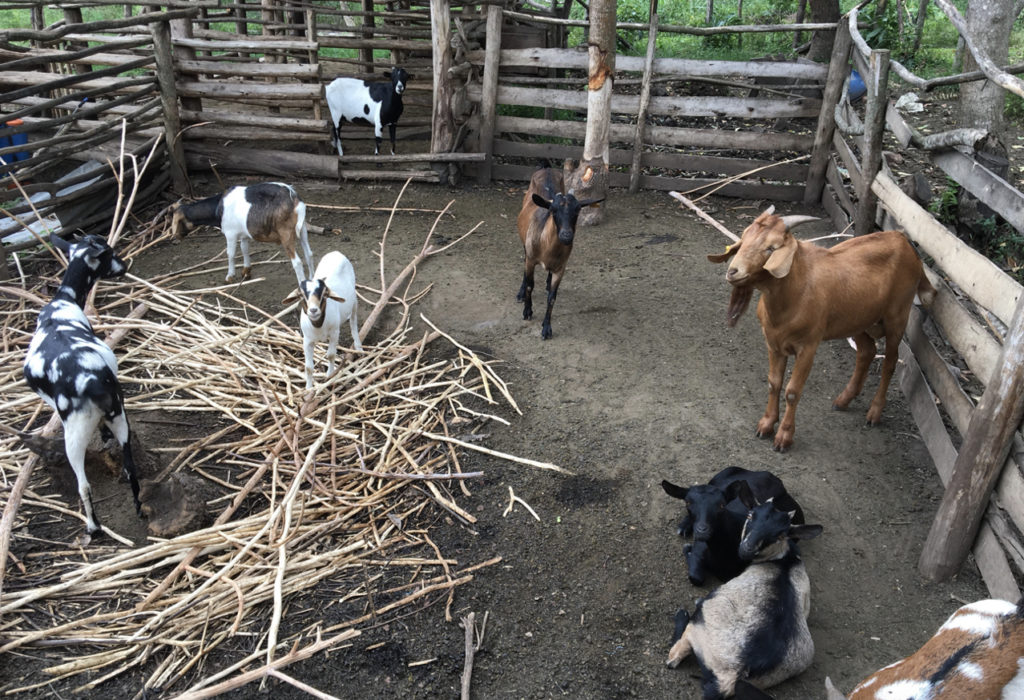BLI Visitors: Kirabo Emma’s Reflection
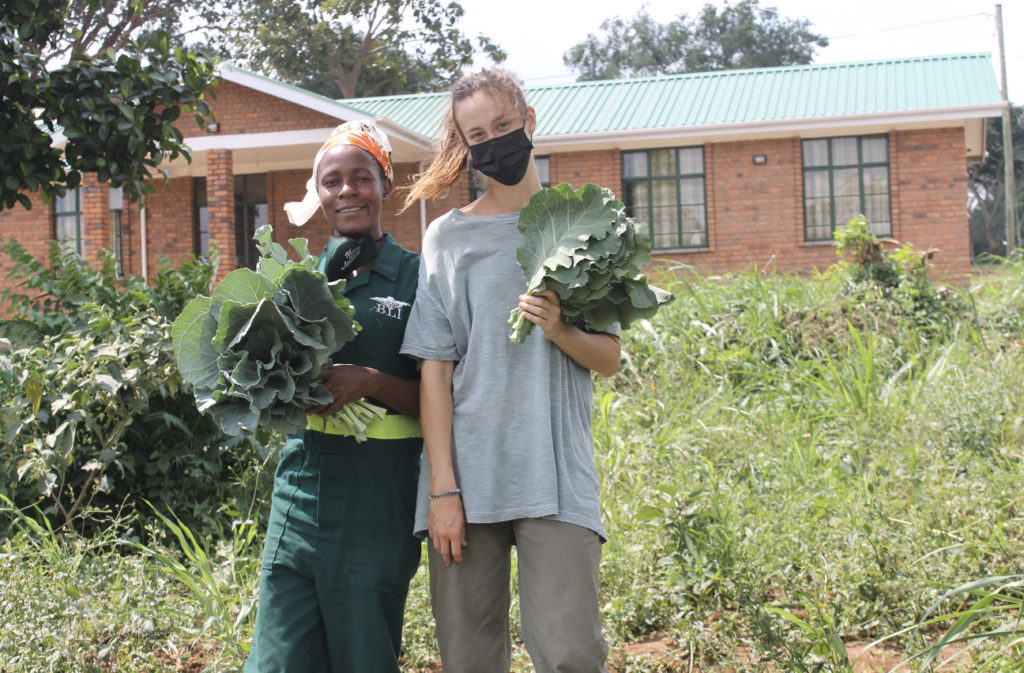
The following is a reflection written by Emma Ziegler, a recent Notre Dame graduate. Emma traveled to BLI in July 2021 with Father Emmanuel and wrote this reflection on the experience:
“Traveling to Bethany Land Institute in Nandere, Uganda, I expected to find a dulled version of the institute I had seen in photos and heard about through stories. The whole country of Uganda was currently under a strict lockdown due to a surge in COVID-19 cases, and all schools had been forced to close. Thus, the classroom component of BLI’s training had been temporary halted, a number of learners had returned to their homes, and even some staff were unable to be on campus. Therefore, although I was so excited to see BLI in person, I had prepared myself for a quieter trip, understanding that the conditions may not allow me to see all BLI had to offer.
What an incredible surprise it was, then, when I arrived in Nandere to a campus more vibrant and full of passionate work than I had ever imagined! While the caretakers and staff were fully adhering to the COVID-19 restrictions, they were not allowing these restrictions to lower their morale or curtail BLI’s progress. On my very first day, I was introduced to nearly 15 caretakers who had remained on campus throughout the lockdown in order to tend to the animals and fields. Despite not being able to train in the classroom, it was clear these caretakers were bound to continue learning during this time. Throughout my three weeks on campus, I witnessed the older caretakers giving lessons to younger caretakers in the fields daily, with the younger caretakers scribbling down important notes in their books. I witnessed group meetings and discussions where staff and caretakers together discussed integral ecology and shared ideas for BLI to better fulfill its mission going forward. And I witnessed the caretakers’ daily passion and drive to continue caring for the land around them in a completely sustainable and organic way. In the way the caretakers both spoke and acted, it was clear they had internalized the mission of BLI and were dedicated to the concept of integral ecology. Not only was this displayed in the fields and meetings but in the informal conversations I had every day with caretakers at lunch, dinner, or during downtime. I remain amazed! If these caretakers have become so passionate and knowledgeable in just the first three months of the program, I can only imagine how prepared and dedicated they will be after two full years.
My interactions with the caretakers were not the only highlight of my trip. Many other aspects of BLI also amazed me and were far more developed than I had expected. BLI has already planted over 30,000 trees in order to reforest encroached areas. Some of these trees are already taller than me and the efforts are re-attracting wildlife to the forest. I was able to see multiple bird species, a few monkeys, and even a black mamba snake while I toured! A savings and credit cooperative has been established, and the vast majority of caretakers have already invested money in it. I even witnessed some caretakers taking their produce to the market in order to make money that they could invest. There is also an array of farm animals present: chickens, guinea fowl, turkeys, goats, and cattle. The caretakers not only care for these animals daily but have created systems to ensure there is zero waste. For example, the manure of the cows and goats is collected and composted to create fertilizer. The animals’ urine is also collected and mixed with other ingredients to create a natural pesticide to use for crops. This innovative system has created a self-sustaining cycle in which the animal sections provide the crop sections with fertilizers and pesticides, and in return, the crop sections provide the animal sections with feeds. (As a non-farmer, I found this creative system absolutely fascinating!) There are also full plantations of bananas, cocoa, cassava, beans, and more. At the Kiwumpa site, over 400 kg of beans have been harvested from this year’s crop and are ready to be sold to the market. There are also well-established social activities on campus, as the caretakers daily play volleyball or soccer together and weekly get together to sing choir hymnals. This list goes on and on… Honestly, every day I was at BLI, I was introduced to new, innovative activities happening on campus that awed me, especially considering the unfortunate COVID-19 situation. I cannot describe them all here, but I hope the aforementioned list serves as a sneak peek into current operations at BLI.
Now, reflecting back on my experience, I realize that I really shouldn’t be all that shocked about the incredible things happening at BLI. This is what the institute is all about: the creation of a new vision, a new community, more vibrant and special than our imaginations can make up! One that is full of passionate young farmers dedicated to transforming rural Uganda through sustainable, organic agriculture and forestry. This is exactly what BLI stands for, and even despite its young age and the difficult circumstances it is facing, that is exactly what I found on campus.
What a joy and honor it was to visit BLI’s campus this past month. I am returning to the states with new joy, much inspiration, and a whole lot of new friends. I am so thankful for the staff and caretakers for so warmly welcoming me and making my stay so great. I look forward to staying involved from afar and patiently await the next time I get to visit in person.
Webale nyo. Jebale ko mukwano.
Kirabo Emma”
Thanks everyone for reading. Below are a few photos Emma took during her trip.
